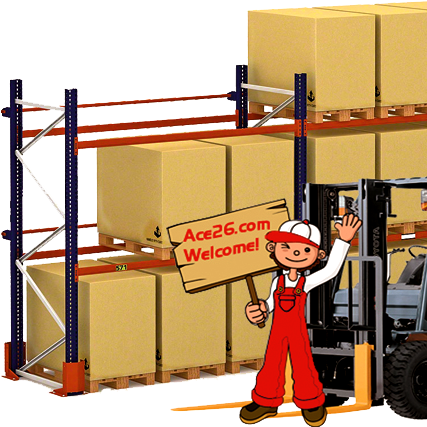
Forklift Service Contracts
Sure, forklifts are rugged, reliable, and last 20,000 hours or more, but they do need periodic maintenance. Regular service and inspections help you catch small issues before they become big, expensive problems. A forklift service contracts plan helps you:
-
- Avoid downtime
- Choose when your forklift goes offline for service – no surprises
- Stick to your budget
- Extend the life of your forklift
- Prevent unexpected repair bills
- Boost the resale value of your lift truck
- Get the most out of your forklift investment
Both full and planned maintenance can be financed along with your forklift purchase. Which one is right for you?
When to Choose Full vs. Planned Forklift Maintenance
If you don’t use your forklift a lot (fewer than 15 hours per week), planned maintenance tends to be a more cost-effective option. It’s also a good choice for smaller operations.
With planned maintenance, you pay a flat rate for basic services such as filter replacement and oil changes (for Internal Combustion forklifts), battery checks (electric forklifts) and a thorough inspection. Replacement parts and additional repairs are not included. Think of it as a safety check-up for your forklift every 90 days.
A full maintenance plan covers labor and replacement parts (planned covers labor only). Full maintenance also includes the major 1000 and 2000-hour services. This is a very cost-effective option for fleets with medium to high-hour applications.
Full vs. Planned Forklift Maintenance – Pros and Cons
Planned Maintenance – Pros
- Our certified technician regularly inspects your forklift and can answer any questions you have about its functionality.
- You only pay for forklift service when it’s performed (on a 250-hour interval, typically 30, 60 or 90-days.
- We’ll remind you when your truck needs service
- Schedule a tech to work on your truck whenever it’s convenient
- Pay a flat rate, no travel time charged
- Our service tech will also inspect the mast, lift chains, forks, hydraulics, braking system, motor, safety components and any attachments
Planned Maintenance – Cons
- You have greater financial responsibility for forklift service and repairs vs. full maintenance
- Breakdowns aren’t covered
- Doesn’t include 1000-hour and 2000-hour major services
- Doesn’t include labor for repairs and/or parts for repairs or services
Full Maintenance Service Contracts
Full Maintenance – Pros
- Pay a predictable, flat-rate monthly fee to maintain your forklift
- All repairs and service calls for normal wear and tear are covered – no surprises
- No quotes or bills to review
- All major components and services are covered under the silver and platinum maintenance agreement
- Improves truck resale value
Full Maintenance – Cons
- Doesn’t cover operator abuse or accidents
(we offer operator training and telemetry devices to help prevent these situations, and our FMP plan includes coverage for abuse/misuse up to Rm500 per occurrence).
6 Reasons to Choose Ace Power Equipment for Forklift Service and Repair
- Ace Power Equipment is a private-owned business
- 20+ years of dock to dock material handling experience
- Strategically-located in Southern State Johor, Ulu Tiram, Perindustrian Cemerlang
- 12-hour mobile service and repair
When You Request Forklift Repair, We Send the Best
Our forklift technicians can handle repairs on any make or model of forklift. Schedule forklift service online, or by Contacting Us. We’re also happy to answer any questions you may have about whether a planned or full maintenance service contract is right for you.



